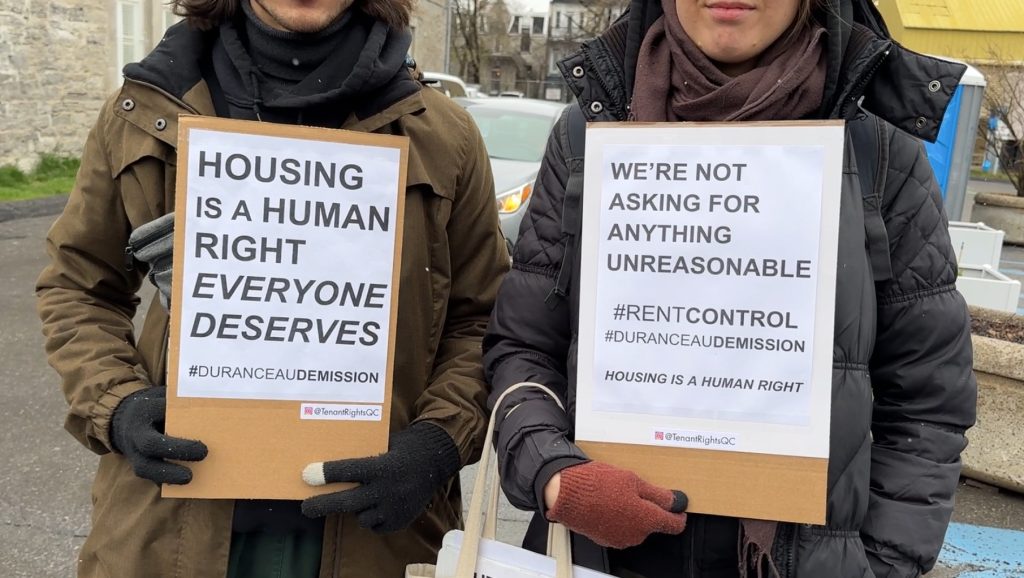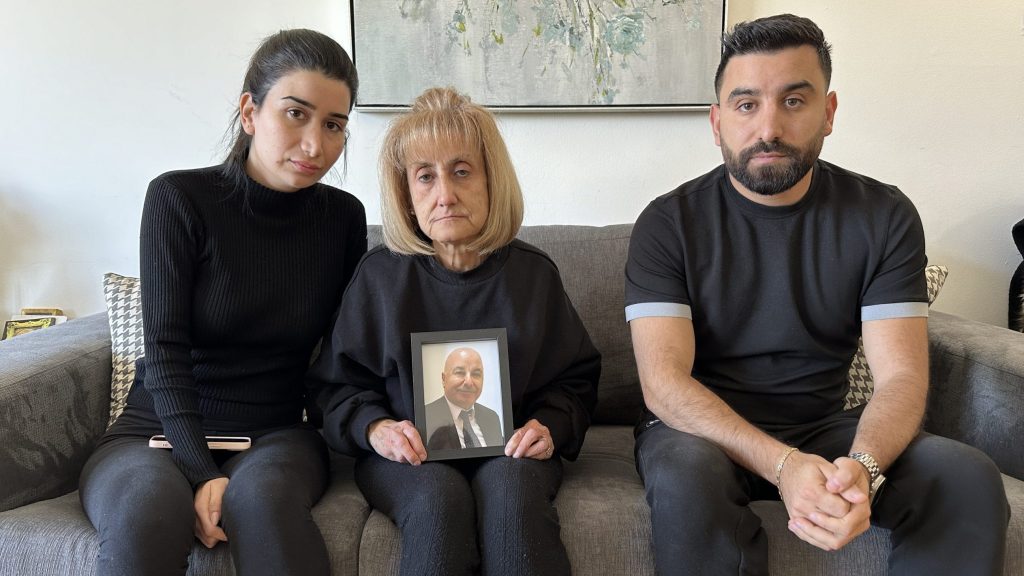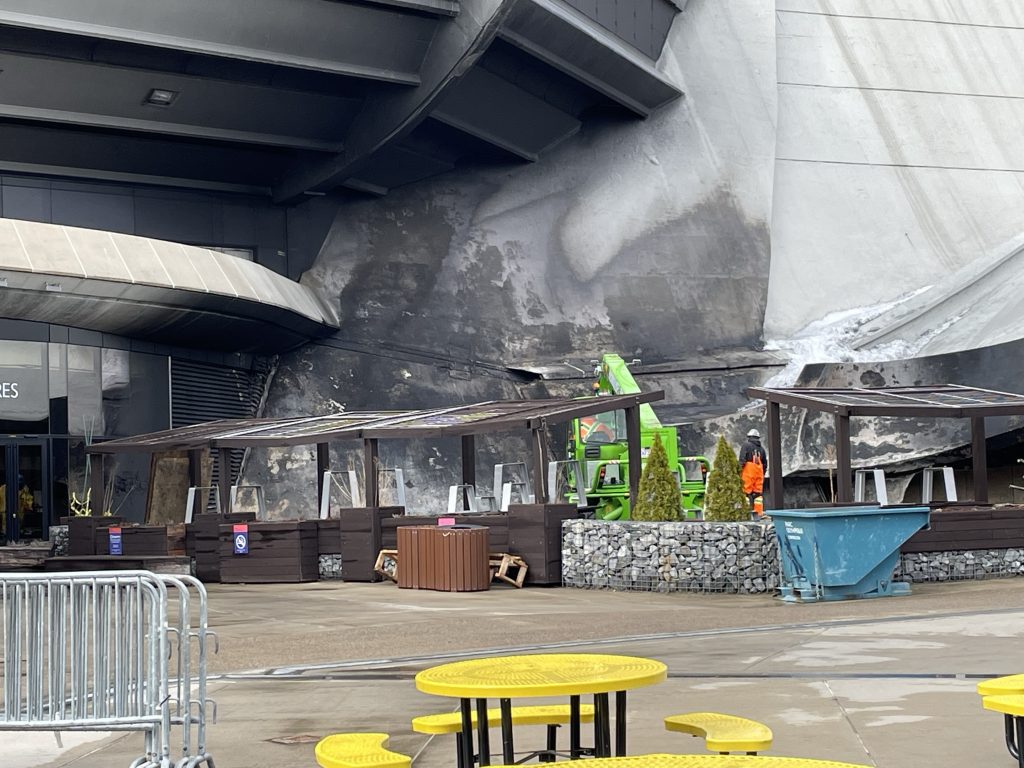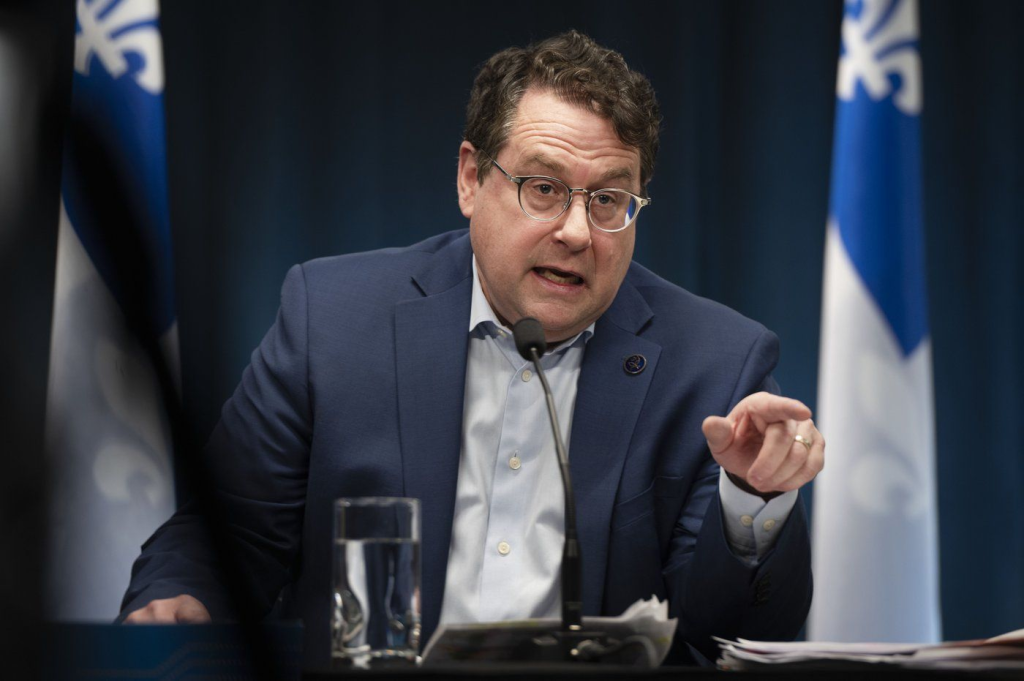Coalition Avenir Quebec wins majority government
Posted October 1, 2018 8:32 pm.
Last Updated October 2, 2018 12:32 am.
This article is more than 5 years old.
MONTREAL _Screams of joy thundered through Coalition Avenir Quebec election headquarters Monday night, with supporters hugging, drinking wine and beer and twirling noisemakers as they learned the party would form a majority government.
Francois Legault, the multimillionaire co-founder of the Air Transat airline, will become the first premier since 1966 to win a general election leading a party other than the Liberals or Parti Quebecois.
Merci! Merci! Merci!
Je suis très touché de votre confiance.
Mon équipe et moi avons très hâte de nous mettre au travail pour vous.— François Legault (@francoislegault) October 2, 2018
Legault guided his right-leaning, seven-year-old party to victory Monday following a 39-day campaign. His win knocked Philippe Couillard‘s Liberals from power.
Winning Coalition candidates were on the floor of Quebec City’s convention centre barely 30 minutes after polls closed, smiling and confidently telling reporters they were ready to assume power.
“I am not surprised, actually,” said Genevieve Guilbault, who was re-elected in her Quebec City riding. Her 2017 byelection victory, when she grabbed a Liberal seat with more than 50 per cent of the vote, was a harbinger of what was to come province-wide Monday.
“Mr. Legault called for a vote of confidence and tonight we are having that,” she said. “We are seeing that Quebecers believe in us, they wanted change, and they saw us as the only possible avenue for that.”
A few steps away from Guilbault was 73-year-old Emilien Caron, holding a noisemaker and celebrating with a glass of beer.
“You got to give a chance to the runner!” he said enthusiastically, adding that his main concern this election was health care.
“We gave a chance to (the Liberals) and look what they did, the health-care system is the same.”
Legault’s party surged out to a strong start shortly after polls closed, leaving the Liberals in second and the Parti Quebecois in a distant third.
J’ai eu l’occasion de m’entretenir avec François Legault pour le féliciter. Je lui lègue un Québec en santé financière et prêt à faire face à tous les défis. Je contribuerai à une transition harmonieuse pour le bien de la population québécoise.
— Philippe Couillard (@phcouillard) October 2, 2018
With support for independence sliding, the PQ is now facing an existential crisis. The party has steadily watched its support slide after spending about 20 of the last 48 years in office. The numbers began flowing in following a tightly fought campaign that many had predicted would shake up the political landscape.
It was more like an earthquake.
The Coalition was leading in more than 70 ridings, well above the 63 seats required for a majority. The Liberals were leading in about 32 ridings. The once-mighty PQ appeared poised to suffer a resounding defeat as it battled with the left-wing Quebec solidaire for the distant third place.
Legault won his riding of L’Assomption, while Quebec solidaire co-spokesperson Gabriel Nadeau-Dubois won in Gouin. Legault ended nearly 15 years of continuous Liberal rule with the victory.
Tonight, Quebecers chose a new government and I congratulate @FrancoisLegault and the @CoalitionAvenir Québec on their election victory. I’m looking forward to working together to make life better for middle class families in the province: https://t.co/D79yJpfb9w
— Justin Trudeau (@JustinTrudeau) October 2, 2018
A look back at the campaign
The Liberals have been in power since 2003, with the exception of a 19-month PQ minority government between 2012 and 2014. The Coalition party gathered significant support, even though the Liberals were in power as Quebec’s economy surged in recent years.
Opinion polls, however, had suggested for months that voters were looking for a change.
As party history goes in Quebec, Legault’s victory represented change. The Coalition win delivered something Quebec hasn’t seen in 48 years, a provincial government headed by a party other than the Liberals or the Parti Quebecois.
The Union Nationale won the 1966 election and held power until 1970. Since then, however, it’s been a two-party show. The emergence of Legault’s party, which won just 22 seats in 2014 to finish third, came in large part at the expense of the PQ.
Polls have consistently indicated the pro-independence PQ, which is led by Jean-Francois Lisee, will come in a distant third. The PQ’s raison d’etre, Quebec sovereignty, has lost its lustre with voters.
Je viens de féliciter @francoislegault pour sa victoire décisive. La grande volonté de changement s’est canalisée en sa faveur. Je lui ai souhaité d’être à la hauteur des espoirs que les Québécois ont investis en lui. #polqc
— Jean-François Lisée (@JFLisee) October 2, 2018
For the first time in decades, talk of a referendum on independence was not a ballot-box issue. The federalist Liberals and the Coalition, even though it’s led by former PQ cabinet minister Legault, have no interest in holding a referendum.
Faced with the shift in public sentiment, Lisee entered the race with a vow not to hold a referendum on sovereignty in his first mandate as premier.
The party, perhaps, that’s discussed referendums the most during the campaign is the smaller, pro-independence Quebec solidaire, which won two seats in the 2014 election.
The Liberals had 68 seats at the legislature’s dissolution, while the PQ had 28, the Coalition 21 and Quebec solidaire three. There were five Independents.
At the end of the campaign, two leaders had stayed ahead of the pack: Legault and Couillard. But even if the final vote count is close, polls had suggested the Coalition could capture many more ridings than the Liberals because of its support among francophone voters.
Legault won power from the Couillard, who only lasted four and a half years as premier. Couillard had touted his government’s balanced budgets as well as the province’s falling unemployment rate and strong economic performance.
Both leaders faced criticism at times: Couillard for having reduced health and education budgets early in his mandate, and Legault for a controversial plan to “expel” immigrants who fail to pass a language and values test within three years of arrival.
WATCH: Tina Tinneriello finds immigration is top of mind for a lot of people casting ballots.
While Legault began the election campaign as the front-runner, the party’s lead dwindled as the Liberals gained ground later on. With the PQ promising to not hold a sovereignty referendum in the next four years, Lisee’s campaign has focused on immigration, health care and the best way to spend the province’s billions in budget surpluses.
Quebec election and the USMCA, the new NAFTA
But despite their differences the leaders found common ground Monday, they criticized the federal government for its renegotiated continental trade pact with the United States and Mexico.
The federal Liberals agreed on a new deal to replace the North American Free Trade Agreement and it included opening up more access to Canada’s dairy market, which includes many producers from Quebec.
Couillard called a Monday afternoon news conference to denounce the now-called USMCA agreement, which he called “very bad for Quebec.” He said he phoned Prime Minister Justin Trudeau to inform him of Quebec’s “profound disappointment” in a deal.
Legault said he would be speaking to Couillard and that he wanted to study all possible options to defend agricultural producers.
“I want us to be able to look at what is best for Quebec as a whole,” he said after casting his ballot in his riding of L’Assomption, northeast of Montreal. “Compromises were made at the expense of Quebec agricultural producers,” he said. “It’s disappointing.”
Lisee seized on the agreement to urge voters to cast a ballot for his party, which he said is the best-placed to defend Quebecers’ interests.
“This agreement is a disgrace,” Lisee said after voting in his Montreal riding of Rosemont.
“A disgrace for Canada, a disgrace for Quebec. It is an expression of the systemic injustice Quebec is victim of within Canada.



